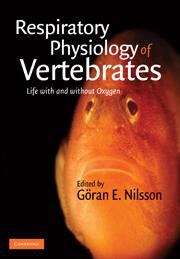Respiratory Physiology of Vertebrates
By:
Sign Up Now!
Already a Member? Log In
You must be logged into Bookshare to access this title.
Learn about membership options,
or view our freely available titles.
- Synopsis
- How do vertebrates get the oxygen they need, or even manage without it for shorter or longer periods of time? How do they sense oxygen, how do they take it up from water or air, and how do they transport it to their tissues? Respiratory system adaptations allow numerous vertebrates to thrive in extreme environments where oxygen availability is limited or where there is no oxygen at all. Written for students and researchers in comparative physiology, this authoritative summary of vertebrate respiratory physiology begins by exploring the fundamentals of oxygen sensing, uptake and transport in a textbook style. Subsequently, the reader is shown important examples of extreme respiratory performance, like diving and high altitude survival in mammals and birds, air breathing in fish, and those few vertebrates that can survive without any oxygen at all for several months, showing how evolution has solved the problem of life without oxygen.
- Copyright:
- 2010
Book Details
- Book Quality:
- Publisher Quality
- ISBN-13:
- 9780511682445
- Publisher:
- Cambridge University Press
- Date of Addition:
- 04/26/11
- Copyrighted By:
- Cambridge University Press
- Adult content:
- No
- Language:
- English
- Has Image Descriptions:
- No
- Categories:
- Nonfiction, Science
- Submitted By:
- Bookshare Staff
- Usage Restrictions:
- This is a copyrighted book.
